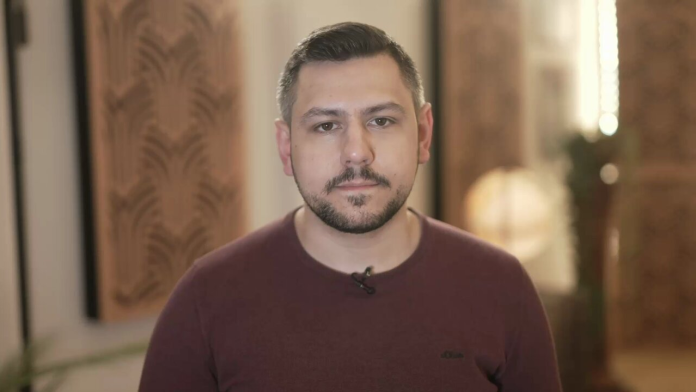Richard Medhurst, an internationally accredited British journalist, has once again found himself at the centre of a state-led crackdown on press freedom. Last year, he was arrested at Heathrow Airport upon landing on 15th August, detained by what has been described as Starmer’s security services—his own country’s version of the Thought Police. Now, the Austrian authorities have escalated their persecution, raiding his studio, seizing his electronic devices, and turning his residence upside down. His crime? Reporting on Palestine and Lebanon.
I was detained this week by the Austrian police and intelligence services.
— Richard Medhurst (@richimedhurst) February 6, 2025
They raided my house, office, and took all my devices.
They are accusing me of being a member of Hamas and threatened me with 10 years in prison.
Journalism is not a crime. pic.twitter.com/gztm4bmLuY
This latest act of intimidation followed a calculated trap: Medhurst was lured into reporting to his local police station, only to find himself facing a targeted raid. The authorities, it appears, seek to criminalise his journalism by painting him as a dangerous extremist. As a Christian Englishman covering Middle Eastern affairs, the absurdity of their allegations suggests that he must somehow be affiliated with Hamas—an organisation proscribed by many Western governments. The mere act of reporting on conflicts and exposing state narratives has led to accusations of spreading propaganda and inciting support for a terrorist organisation. With his latest book focusing on cyberterrorism, the attempt to vilify his work is even more transparent.
Medhurst’s ordeal is not an isolated incident. In a recent speech, musician and activist Brian Eno referenced a Russian historian who described how revolutions occur in two phases: the first, when everyone realises something is deeply wrong; the second, when everyone knows that everyone else is aware of this fact. The crackdown on journalists, activists, and independent writers is a concerted effort to prevent this second phase from materialising. Starmer’s measures to stifle demonstrations and silence dissenting voices are a clear indication of an attempt to control public discourse by force.
The suppression of journalists like Medhurst is part of a broader, coordinated attack on press freedom. Just last week, Swiss authorities arrested Ali Abunimah, co-founder of The Electronic Intifada. He was snatched off the streets, bundled into an unmarked van, interrogated, and detained for two days before being deported from Switzerland. This clandestine repression of independent voices marks a worrying trend across Europe, where the state employs heavy-handed tactics to intimidate and silence those who challenge official narratives.
These are dark times for press freedom. The targeting of journalists through arrests, raids, and deportations signals an era where independent reporting is treated as a threat rather than a pillar of democracy. The question remains: how far will governments go to suppress those who dare to speak the truth?







